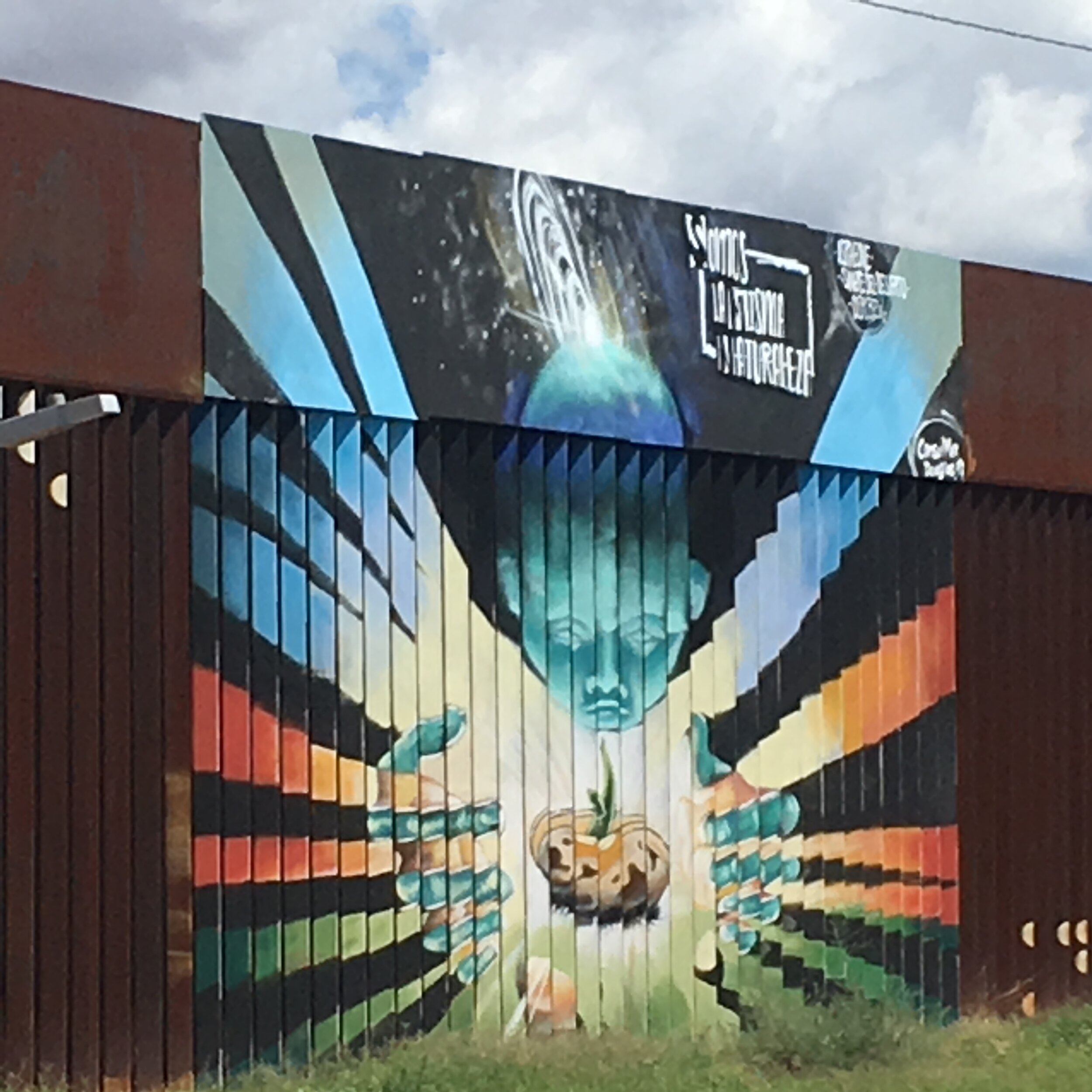Divided-Connected
/I want to write about the realities of Douglas-Agua Prieta, but I haven’t processed them enough to do so. I’ve come to understand a little and there is still so much more to know. I imagine I will try to offer my imperfect understanding once I’m home. For now I offer a small piece of my personal experience.
I came to Douglas, Arizona to do migrant accompaniment work across the border in Agua Prieta, Mexico for about two weeks. Unexpectedly, about 48 hours in, I had a gallstone pass and spent about a day and a half in the hospital.
When I was released, I went back to work, feeling bad for having missed shifts I was supposed to have worked. I had come to alleviate the workload for some folks…and those same folks drove me to a hospital an hour away, visited me there, and picked me up, while doing the work I’d come to help them with.
When I returned, I did an evening shift, then worked all three shifts both weekend days. By Sunday night I was tired. Really tired. The work is not physically demanding, but it is spiritually and emotionally challenging.
Monday morning almost as soon as I woke up, the grief of this place gripped me strongly. I carried it with me into the morning shift, where it turned into frustration that people had needs I couldn’t help fill. I was relieved when the shift was over, in part because I’d get a break all the way until the evening shift.
I went back to my casita, exhausted, frustrated, trying to reconcile my belief in the abundance of our world with the experiences of scarcity I am witnessing and sometimes participating in with the people I am here to accompany. Depleted, I cried…and then I cried some more. My inability to see beyond the grief was interrupted by a phone call from one of my hosts. He called to tell me that in Agua Prieta, people were getting ready for the Mexican Independence Day parade. After we hung up, I sat for a moment, trying to determine if going to the parade would make me feel better or worse. Then I dried my eyes, wiped my nose, put on some sunscreen and headed south.
As I was walking to the border, a man was walking very unsteadily toward me. Then he collapsed. I approached him, his hand and face were bleeding. I helped him up, but he was so shaky, he fell again. I asked if he wanted me to take him for medical care. He said no, he was fine (he was not fine), and asked me to help him get to his car at Walmart down the road. I got my little blue truck and after consulting with another man who’d come to see what was going on, I took the man to the same Emergency Room I was brought to on Wednesday night. A nurse helped him into a wheelchair and wheeled him in. I left my name and number at the ER desk, though I don’t know what they could have done with it. The man’s name was Bob, same as my dad’s. I heard him say his birthdate; he’s about 15 years younger than my dad, but you wouldn’t have known that by looking at him.
After doing what I could for Bob, I parked my car again and headed again on foot toward Agua Prieta, this time crossing without incident. I quickly found the parade; I enjoyed the celebrations, watching people young and old, mostly women and girls in traditional costumes, some siting on car hoods, throwing candy to gleeful children who scurried to catch it or pick up the pieces no one had managed to catch. Several dance troupes danced down the streets. Two drum corps played. A couple of bands rode in truck beds and rocked it out along the route. The parade ended with dozens and dozens of people on horses; some rode solo, some rode with children. When the parade ended, I walked back north, noticing the “aroma” the horses had left along the parade path.
Before crossing back into the U.S., I decided to walk along the Mexico-side of the border fence, a practice that feels in some ways familiar from my time in Israel-Palestine. The tall slatted metal fence that now separates Douglas and Agua Prieta bisects a community in which people used to be able to travel freely to see friends and family, go to work, or take care of other mundane business. Now the wall and the gates, turnstiles, cameras, and multiple checks of one form or another make the realities of daily life in a binational community more cumbersome.
During my walk, I chose to focus on the art, not wanting to sink back into the sorrow that the wall’s existence provokes. As I walked, I noticed how the pictures expanded and contracted depending on the angle at which I viewed them. Some paintings were only visible from one angle because only one side of the slats were painted. At least one painting was different from one side to the other. As I walked, I soaked in both sunshine and the vibrant, hopeful energy of the art.
By the time I reached the U.S. border crossing, I felt renewed. I felt more balanced having held both mourning and celebration, separation and connection, destruction and creation.
I walked back into the U.S., enjoyed chilaquiles for lunch, and did some of the work that I cannot fully leave at home while I am away.
Feeling renewed, I returned to Agua Prieta for my evening shift.



